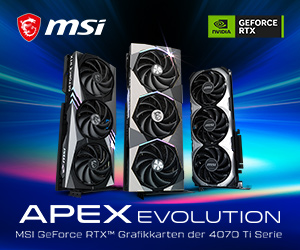NVIDIA is facing new challenges as the production of its anticipated Blackwell GPUs may be stalled. These delays could have a significant impact on the artificial intelligence (AI) and high-performance computing market, especially considering NVIDIA’s role in these areas.
The Blackwell GPUs were originally scheduled for release in 2024. This new generation of GPUs was intended to further extend NVIDIA’s technological lead in the field of AI and data centers. However, reports are now mounting that design problems could lead to a delay in the market launch. The causes of this delay appear to lie in Blackwell’s architecture. Specific technical challenges are apparently forcing NVIDIA to revise the original designs. This revision is not only time-consuming, but also requires additional financial resources. As a result, NVIDIA has revised its production forecasts for 2024 downwards. Instead of the originally planned 600,000 units, it is now expected that only 500,000 Blackwell GPUs will be produced next year.
The news of the production delays has caused a stir in the industry. Analysts and market observers are wondering what impact this will have on competition in the AI sector. Despite the difficulties, NVIDIA remains a dominant player in the AI hardware market. The company’s influence is so great that even delays in the launch of new products could not fundamentally change the market. Stacy Rasgon, an analyst at Bernstein, expressed confidence that NVIDIA will be able to maintain its leading position despite the production problems. Rasgon argues that competitors AMD and Intel will not be able to take advantage of NVIDIA’s delay, as their own AI architectures are not expected to be ready for the market until mid-2025.
However, the delay in the market launch of Blackwell GPUs could have far-reaching consequences for the entire AI sector. Many companies, including Microsoft, are planning to use large AI clusters based on the latest NVIDIA technology. If the introduction of Blackwell is indeed delayed, these companies may be forced to adjust their plans. Such an adjustment could lead to even tougher competition in the AI sector. Companies that rely on NVIDIA’s technology could look for alternative solutions to meet their timelines. This could further fragment the AI hardware market and increase pressure on NVIDIA to resolve design issues as quickly as possible.
Adjusting production processes to fix the design flaws will not only take time, but also incur additional costs. JPMorgan has already indicated that fixing the problems could involve significant financial expenses. It is expected that NVIDIA will not only have to invest in revising the designs, but also in adapting its production facilities. These additional costs could weigh on NVIDIA’s margins in the coming quarters. It remains to be seen how the company will overcome these financial challenges, especially in a market environment that is increasingly characterized by economic uncertainty.
Despite the current challenges, the future of Blackwell GPUs remains of great interest. The new architecture promises significant performance gains in AI computing and could further cement NVIDIA’s position as market leader. If the design issues are successfully resolved, Blackwell could still have the potential to have a lasting impact on the market. The market will be watching developments around Blackwell closely, particularly with regard to the impact on NVIDIA’s business results and the company’s strategic decisions. NVIDIA is expected to provide more information on the progress of the Blackwell architecture redesign and new launch timelines in the coming months.
NVIDIA is facing a complex situation that not only presents technical challenges, but could also impact the AI hardware market. The production delays and design issues of the Blackwell GPUs could have a short-term impact on the plans of many companies that rely on NVIDIA’s technology. At the same time, it remains to be seen whether the competition will be able to capitalize on this situation. It will now be crucial for NVIDIA to resolve the design issues quickly and efficiently in order to meet the planned schedule as far as possible. The tech industry will be eager to see how the situation develops and what impact this will have on the market.
Source: Reuters


































2 Antworten
Kommentar
Lade neue Kommentare
Urgestein
Urgestein
Alle Kommentare lesen unter igor´sLAB Community →